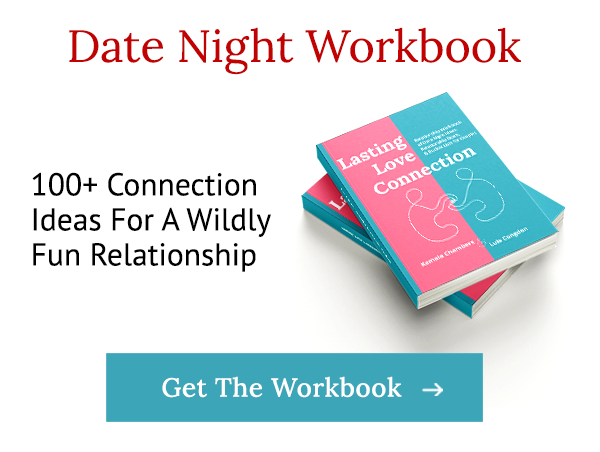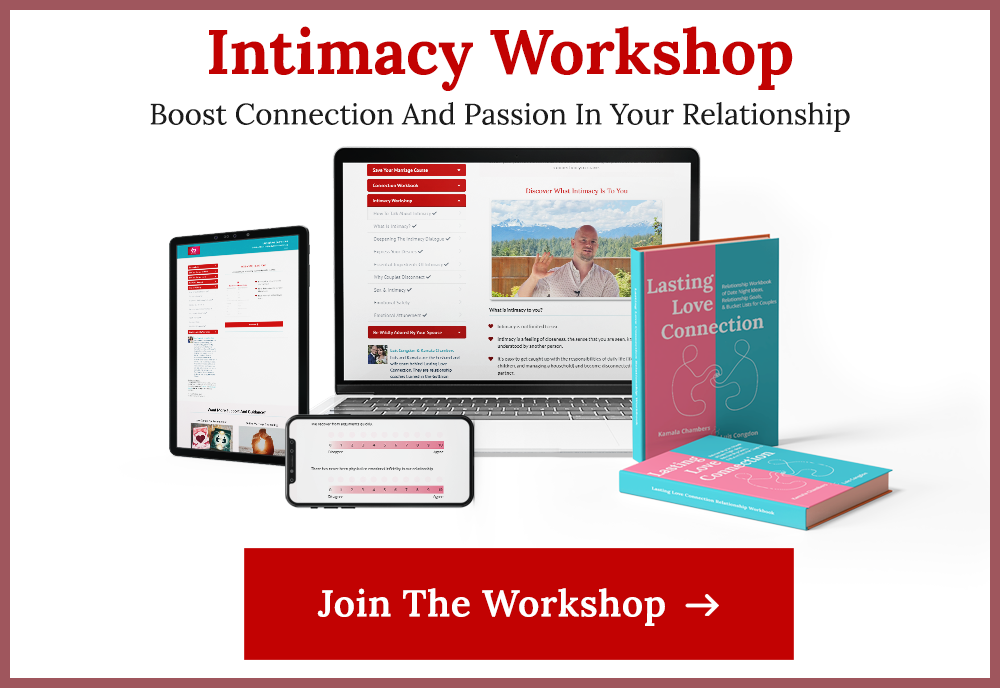Building emotional safety in relationships is essential for lasting connection and intimacy.
If someone asked you to define connection, what would you say?
You would most likely mention a relationship where you feel accepted, understood, and valued for all aspects of yourself.
These feelings only arise when you feel safe enough to share yourself with your partner.
This article will discuss the significance of emotional safety in fostering meaningful connections.
Additionally, you’ll get steps to build emotional safety and have the loving and healthy relationship you desire.
Table of Contents
What is emotional safety?

Emotional safety is the foundation of healthy relationships.
Emotional safety means feeling secure enough to express your thoughts and feelings without fear of judgment.
When you have emotional safety, you trust that your partner will accept you and respond with openness and understanding.
Emotional safety leads to mutual trust and unconditional support.
If at least one person in the relationship does not feel emotionally safe, it can create a barrier to meaningful connection.
However, you can improve emotional safety with small steps towards better communication and closeness.
Emotional safety means you can be your true self

In an emotionally safe relationship, you feel comfortable enough to be your most authentic self.
You feel seen and understood.
You can express yourself honestly, even when it leads to an uncomfortable conversation.
And you trust that your partner will respect your opinions and seek to understand your perspective, even if they feel differently.
While you don’t have to share every potential feeling, an emotionally safe relationship creates a safe space to be yourself.
Further, sharing your true self can encourage your partner to be more open with you.
When both people in the relationship feel secure, you unlock deeper intimacy and connection you may not have known was possible.
How to build emotional safety for a healthy and happy relationship

Emotionally safe relationships don’t just happen overnight.
Establishing emotional safety in a relationship requires effort and time.
With small steps, you can move toward establishing trust and healthy communication.
Let’s explore seven helpful ways to build emotional safety in your relationship.
Create a safe space to share
Set aside a consistent time for you and your partner to check in with each other.
Relationship check-ins allow you to share your fears, hopes, and frustrations, whether it involves the relationship or other life stressors.
During relationship check-ins, practice transparency by sharing your thoughts and emotions with your partner.
You can talk about anything, even when you hurt your partner or they hurt you.
As your partner shares their feelings, approach them with a spirit of openness and curiosity.
Try to put yourself in your partner’s shoes and see from their perspective.

When you have a safe environment to share, it leads to deeper emotional intimacy.
The gifts of being open and vulnerable unfold.
For a step-by-step guide to relationship check-ins and how to create emotional safety, pick up the Lasting Love Connection Relationship Workbook.
Practice active listening

One key aspect of a healthy relationship is practicing active listening.
To actively listen means focusing solely on your partner and removing any distractions while they share their thoughts and feelings.
It can be easy to get lost in our thoughts and start formulating a response instead of truly listening.
Not being tuned in may make your partner feel unheard or dismissed, resulting in them withdrawing from sharing with us altogether.
These instances can add up and erode emotional safety in the relationship.
Active listening shows that you value what your partner is saying.
When your partner is talking, practice maintaining eye contact, reflecting back on what was said, and asking follow-up questions.
To strengthen intimacy, pay attention to the meaning behind your partner’s words.
Respect boundaries

Another critical component of a healthy relationship is setting and respecting boundaries.
Boundary setting is crucial for nurturing respect and emotional security.
Establishing personal limits creates a safe environment for you and your partner.
For instance, you might ask for time away to recharge or to visit with a friend or family member.
Alternatively, you could make it clear that you won’t tolerate yelling during disagreements and that your partner needs to remain calm for you to stay in the room.
At first, expressing your boundaries may feel uncomfortable, especially if you come from a family where boundaries weren’t emphasized.
However, communicating your needs and limitations is essential for building healthier relationship dynamics.
When you and your partner respect each other’s boundaries, you deepen trust and emotional safety.
Be aware of your nonverbal communication

Your nonverbal communication is vital in establishing a sense of emotional safety.
It’s not just about what you say but also how you say it.
Your body language and other micro expressions significantly impact how your partner feels.
For example, if you respond to your partner with a harsh vocal tone or tightly pressed lips, they may not feel comfortable opening up to you.
If they are constantly detecting that you are critical or blaming, they’re less likely to feel emotionally safe and more likely to become defensive.
On the other hand, if you show attentiveness through eye contact, nodding, and smiling, your partner is more likely to feel supported and comfortable sharing with you.
Therefore, practice paying attention to the nonverbal signs you’re sending.
When interacting with your partner, ask yourself, ‘What is my body language communicating right now?’
Give your partner the benefit of the doubt

Giving your partner the benefit of the doubt means removing judgment and avoiding making assumptions about their behavior.
Instead of jumping to conclusions, try to remain curious and open-minded.
For instance, if they didn’t answer your phone call, don’t automatically assume they don’t care about you or want to break up with you.
There are numerous reasons why your partner could not have answered that do not involve causing hurt intentionally.
Ultimately, most people’s motivations are linked to their own baggage, fears, and struggles.
Therefore, aim to see your partner through a lens of empathy and understanding.
Assuming the best of each other fuels emotional safety.
Follow through

Consistent effort shows that you are committed to the relationship.
Without consistency, you never quite know how your partner will show up from one day to the next.
As a result, you may not feel safe enough to open up.
However, you can take steps to build consistency and increase emotional safety.
Start by letting your partner in about your relationship goals and challenges.
When you foster accountability, you allow each other a safe space to be honest about your hopes and struggles.
Holding each other accountable strengthens trust and brings you closer as a team.
As life continues to throw challenges your way, you know you can rely on your partner to be there for you.
Seek relationship therapy or coaching

If you find yourself stuck in unhealthy patterns or want guidance in building emotional safety in your relationship, consider couples therapy or coaching.
Couples therapy provides a mental health professional’s perspective on the relationship issues you may be facing.
At Lasting Love Connection, we specialize in helping people in relationships build emotional safety and teach them skills to feel more connected to themselves and their partners.
We offer virtual couples counseling so that you can address issues where they start: at home.
You can schedule sessions to fit your schedule without worrying about commuting to a therapy office.
Book a complimentary consultation to see if working with us would be a good fit.
You can have the loving relationship you desire
It is possible to establish new patterns and have a healthy relationship, no matter how deeply ingrained your current habits may be.
Using these strategies, you can develop positive behaviors and communication patterns that promote emotional safety and strengthen intimacy.
Consider joining the Intimacy Workshop, which teaches couples how to create emotional safety in their relationship.







0 Comments